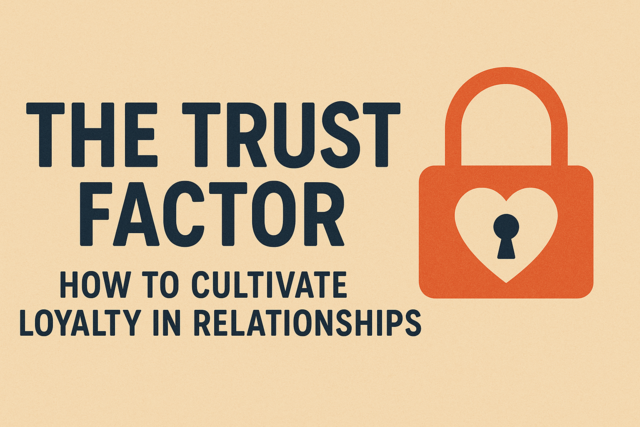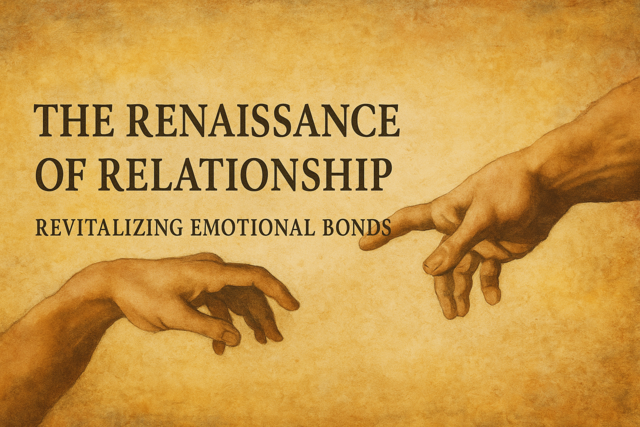Online Class: The Art of Listening — Creating Understanding in Relationships

no certificate
with CEU Certificate*
-
15Lessons
-
22Exams &
Assignments -
5Hours
average time -
0.5CEUs
Course Description
In a world that never seems to slow down, where the noise of daily life drowns out the subtle whispers of genuine connection, there exists a crucial skill—one that separates fleeting interactions from meaningful relationships. Welcome to "The Art of Listening: Creating Understanding in Relationships," a comprehensive journey designed not just to enhance your listening skills, but to fundamentally transform the way you engage with the world around you. This is more than a course; it's an invitation to transform your life.
Imagine unlocking the power within you to truly understand others and be understood in return. Picture yourself setting conversations free from the confines of superficial exchange, rediscovering intimacy, trust, and genuine connection. This course uncovers the hidden magic in every interaction, teaching you to transform the act of listening from a passive experience into a dynamic and powerful tool for personal and professional growth.
The importance of listening—true listening—cannot be overstated. It is the cornerstone of all good communication and the key to unlocking empathy, understanding, and cooperation. Far more than hearing words, it involves tuning into the emotions beneath the surface and creating a comforting space for others to express themselves fully. Imagine being able to walk into any situation, confident in your ability to connect on a deeper level.
We start by guiding you through the art of listening deeply. This skill will allow you to peel back the layers of conversation and engage with the essence of what is being communicated, fostering richer and more authentic relationships. We explore the vital role of emotional intelligence—not only does it bridge cultural and societal divides, but it promotes a more compassionate approach to all of your interactions.
The cultivation of these skills means overcoming the inherent challenges posed by language barriers, fatigue, and cognitive distractions. We teach you to identify these barriers and address them head-on, ensuring that nothing stands between you and profound connection. Our course further delves into the world of non-verbal communication, revealing the silent language of gestures and expressions, keys to unlocking the full spectrum of human interaction.
But this journey isn't just about interpersonal skills; it's a path to personal transformation. We guide you through the nuances of mindfulness in communication, enabling you to confront cognitive filtering and emotional hijacking, barriers to the empathetic and mindful dialogue we all seek. You will explore the subtle differences in communication across cultures and generations, enhancing your ability to give and receive feedback in any setting. Your skill set becomes not only practical but also adaptable across the tapestry of human diversity.
The transformative power of reflective listening breathes life into once-strained relationships, turning misunderstanding into empathetic partnerships. As we dive into the digital age, you will learn how to balance active and passive engagement in online interactions, ensuring that your communication skills are as sharp in the virtual world as they are in real life.
Through emotional intelligence and curiosity, hallmarks of exceptional communication, you'll discover how to transform every interaction into an exploration of ideas, fostering connections that last. As you decode the language of body cues and tones with newfound acumen, even conflicts become opportunities for dialogue and understanding.
This course is about patience and presence, a rebellion against the fast-paced demands of modern society, and a commitment to meaningful exchange. Understanding the vital difference between hearing and listening becomes the foundation upon which your new communication prowess is built—a foundation that can profoundly alter every area of your life, from professional success to personal satisfaction.
Enrolling in "The Art of Listening: Creating Understanding in Relationships" is not just a decision to improve your communication skills. It's a decision to transform the way you connect with the world. It's the best investment you can make in yourself and in the future of those around you. Step into this opportunity, and watch as your relationships flourish and your life becomes richer for the insights and understanding you bring into every conversation. We can't wait to see where this journey will take you.
- Completely Online
- Self-Paced
- 6 Months to Complete
- 24/7 Availability
- Start Anytime
- PC & Mac Compatible
- Android & iOS Friendly
- Accredited CEUs

Course Lessons
Lesson 1. Listen Deeply: The Key to Building Authentic Relationships
Active listening means more than hearing words; it requires tuning into the speaker's emotions and creating a safe, supportive space for them to explore their thoughts. Through presence, individuals develop patience, comprehend non-verbal cues, and nurture environments conducive to deep communication and shared understanding.Lesson 2. Embracing Emotional Intelligence: The Path to Deeper Connections
Practicing empathy enriches interactions by bridging cultural and social divides, fostering understanding and inclusion. This skill is vital for collaborative environments and personal growth, promoting a more compassionate approach to relationships.Lesson 3. Barriers to Effective Listening: Overcoming Challenges for Better Connections
Language differences and mental fatigue pose significant challenges to effective listening, disrupting understanding and engagement in conversations. Bridging these gaps through simplifying language and employing stress management techniques enhances clarity and sets the stage for profound connections and comprehension.Lesson 4. Beyond Words: Enhancing Connections through Non-Verbal Clues
Body language, a core component of non-verbal interaction, involves physical positioning to convey emotions like defensiveness or approachability, crucial in understanding conversations and easing tensions. Awareness of cues like leaning in or mirroring gestures enhances interpersonal skills and promotes deeper connection across personal and professional spheres.Lesson 5. Empathy and Mindfulness in Communication
Master mindfulness in listening by overcoming barriers like cognitive filtering and emotional hijacking, enhancing relational depth. Cultivating empathy and awareness of nonverbal cues allows for richer, more connected interactions.Lesson 6. Individualistic vs. Collectivist Listening Practices
Individualistic cultures prioritize personal goals and direct communication, while collectivist cultures focus on group cohesion and subtle cues. Recognizing these differences can improve our ability to give and receive feedback appropriately across diverse cultural settings.Lesson 7. Empathy Across Ages: Listening Skills for a Diverse Society
Generational nuances amid technological and societal changes offer opportunities to enhance empathy and listening. By appreciating differing values, individuals improve communication, bridging generational gaps effectively.Lesson 8. Emotion Triggers and Responses
Mastering nonverbal cues, such as facial expressions and body language, enriches conflict resolution strategies and fosters empathy. Cultivating emotional intelligence allows for responsive, compassionate exchanges, enhancing relationship quality.Lesson 9. Auditory Processing Explored
The lesson explores auditory processing in the brain and its essential role in enhancing listening skills that enrich relationships, highlighting the journey from sound wave detection to interpretation within the auditory cortex. Through neuroplasticity and aware listening practices, we discover the potential to hone auditory sensitivity and understanding, crucial for effective communication and empathy development.Lesson 10. Building Trust with Reflective Listening
Reflective listening transforms strained relationships into empathetic partnerships by fostering understanding and respect. It challenges existing listening habits, promoting a culture of empathy and connection.Lesson 11. The Art of Being Inquisitive: Transformative Listening Tactics
Curiosity acts as a powerful tool in active listening, transforming conversations into explorations of ideas and fostering cultural and empathetic understanding. By prioritizing open-ended questions and genuine interest, we create meaningful and lasting connections in diverse settings.Lesson 12. Navigating Listening in a Digital World: Balancing Active and Passive Engagement
Technological advancements have led to a prevalence of passive listening, affecting our relational dynamics and communication skills. By fostering active listening through techniques like reflective listening and emotional engagements, we can enhance our interactions in both personal and digital spaces.Lesson 13. Decoding Body Language and Emotional Cues for Deeper Connections
Reading emotional cues, such as body language and tone of voice, is fundamental in forming strong connections, as they often convey more than spoken words do. Through active listening and enhanced emotional intelligence, we can interpret these signals and foster empathy, turning even conflicts into opportunities for dialogue and understanding.Lesson 14. Patience Unveiled: The Psychology of Listening in Modern Interactions
In a fast-paced, tech-driven world, honing patience is vital for effective listening, often hindered by cognitive overload and societal pressure for quick responses. By cultivating mindfulness and being present, we can transform communication into a profound exchange that fosters mutual understanding.Lesson 15. Hearing vs. Listening: The Foundation of Effective Communication
Transformative listening is recognizing the value of each interaction, advancing from passive hearing to active engagement to resonate with and validate others' experiences. By cultivating a distraction-free environment and tapping into non-verbal signals, listeners transcend superficial communication barriers, forging intimate connections.
Learning Outcomes
- Define presence in the context of active listening and demonstrate its impact on communication by providing specific examples of creating genuine connections.
- Identify techniques for effective nonverbal communication, such as body language and eye contact, and explain their role in enhancing active listening in various contexts.
- Demonstrate active listening by interpreting non-verbal cues and providing empathetic responses to foster interpersonal relationships.
- Recognize and describe six basic emotions (happiness, sadness, fear, anger, surprise, and disgust) to enhance empathy and connection with others.
- Define common barriers to effective listening, including environmental distractions, internal psychological barriers, emotional interference, and language differences, in a conversational setting
- Demonstrate strategies to overcome identified listening barriers, such as employing mindfulness practices, minimizing distractions, and practicing empathy in diverse interpersonal communications
- Define the various components of non-verbal communication and describe how each can influence interpersonal dynamics in both personal and professional settings.
- Demonstrate the ability to recognize and interpret different non-verbal cues accurately across cultural contexts, identifying any potential misunderstandings to enhance empathic communication.
- Identify nonverbal cues in communication settings and demonstrate how these cues influence understanding and empathy in interactions.
- Recognize and describe cognitive barriers, such as cognitive filtering, that disrupt mindful listening and propose strategies to overcome them.
- Identify and demonstrate the impact of high-context and low-context communication on listening effectiveness across different cultures.
- Recognize and describe how individualistic and collectivist cultural perspectives shape distinct listening styles.
- Identify and articulate key generational differences in values and communication styles to enhance listening skills and cultivate empathy across age groups.
- Demonstrate mastery of lesson content at levels of 70% or higher.
Additional Course Information

- Document Your Lifelong Learning Achievements
- Earn an Official Certificate Documenting Course Hours and CEUs
- Verify Your Certificate with a Unique Serial Number Online
- View and Share Your Certificate Online or Download/Print as PDF
- Display Your Certificate on Your Resume and Promote Your Achievements Using Social Media

Choose Your Subscription Plan
No Certificate / No CEUs
This course only
| Includes certificate | X |
| Includes CEUs | X |
| Self-paced |

|
| Instructor support |

|
| Time to complete | 6 months |
| No. of courses | 1 course |
Certificate & CEUs
This course only
| Includes certificate |

|
| Includes CEUs |

|
| Self-paced |

|
| Instructor support |

|
| Time to complete | 6 months |
| No. of courses | 1 course |
Certificates & CEUs
Includes all 600+ courses
| Includes certificate |

|
| Includes CEUs |

|
| Self-paced |

|
| Instructor support |

|
| Time to complete | 12 Months |
| No. of courses | 600+ |
Certificates & CEUs
Includes all 600+ courses
| Includes certificate |

|
| Includes CEUs |

|
| Self-paced |

|
| Instructor support |

|
| Time to complete | 24 Months |
| No. of courses | 600+ |
Related Courses
-
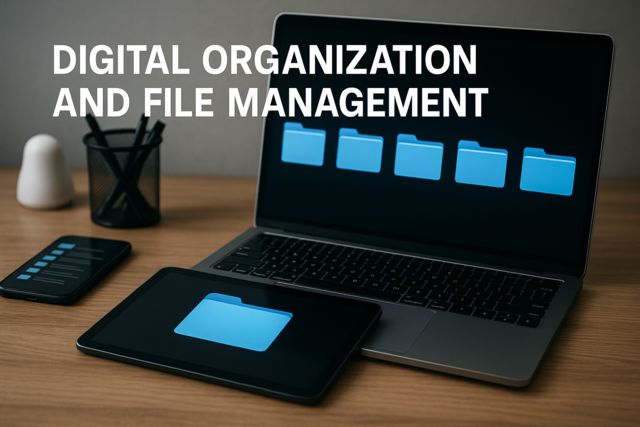 3 hours
0.3 CEUs
Digital Organization and File Management
+ More Info
3 hours
0.3 CEUs
Digital Organization and File Management
+ More Info
-
 6 hours
0.6 CEUs
Transition Planning: From School to Adult Life
+ More Info
6 hours
0.6 CEUs
Transition Planning: From School to Adult Life
+ More Info
-
 5 hours
0.5 CEUs
Conscious Living: Mastering Mindfulness
+ More Info
5 hours
0.5 CEUs
Conscious Living: Mastering Mindfulness
+ More Info
-
 5 hours
0.5 CEUs
Cooking and Nutrition for a Healthy Life
+ More Info
5 hours
0.5 CEUs
Cooking and Nutrition for a Healthy Life
+ More Info
-
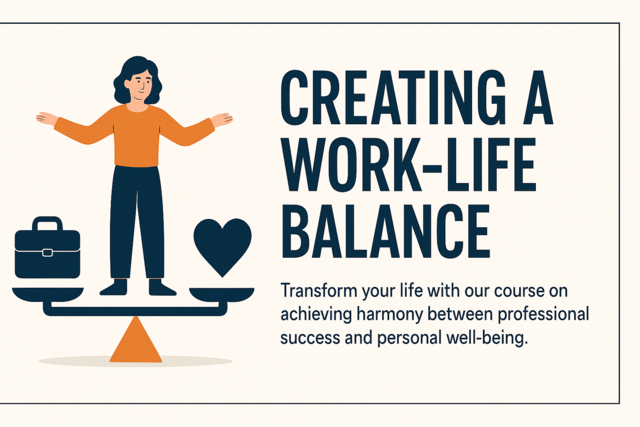 6 hours
0.6 CEUs
Creating a Work-Life Balance
+ More Info
6 hours
0.6 CEUs
Creating a Work-Life Balance
+ More Info
-
 6 hours
0.6 CEUs
Leadership Skills for Instructional Coaches
+ More Info
6 hours
0.6 CEUs
Leadership Skills for Instructional Coaches
+ More Info
-
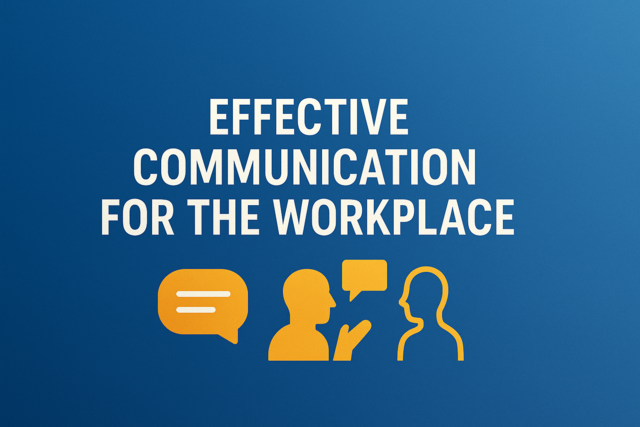 7 hours
0.7 CEUs
Effective Communication for the Workplace
+ More Info
7 hours
0.7 CEUs
Effective Communication for the Workplace
+ More Info
-
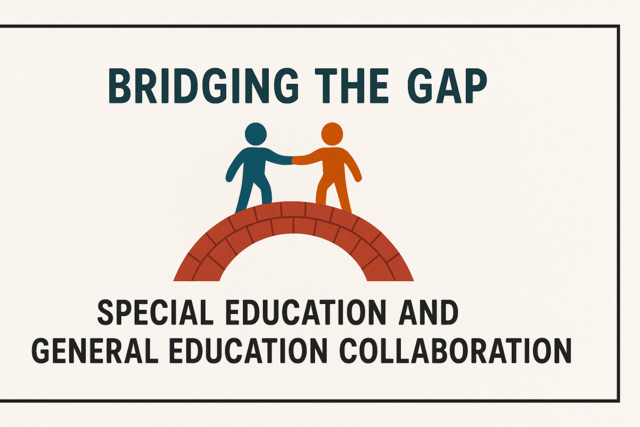 4 hours
0.4 CEUs
Bridging the Gap: Special Education and General Education Collaboration
+ More Info
4 hours
0.4 CEUs
Bridging the Gap: Special Education and General Education Collaboration
+ More Info
-
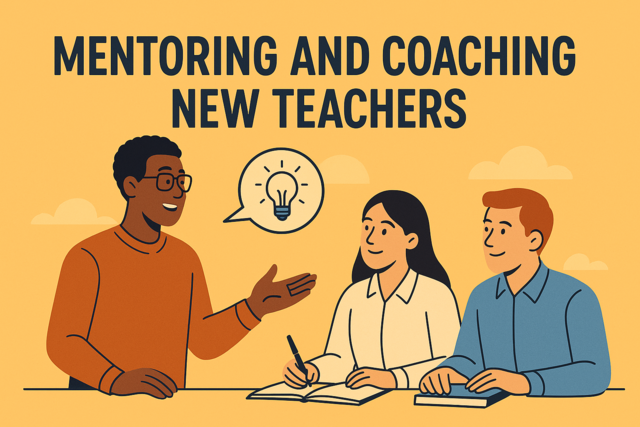 5 hours
0.5 CEUs
Mentoring and Coaching New Teachers
+ More Info
5 hours
0.5 CEUs
Mentoring and Coaching New Teachers
+ More Info
-
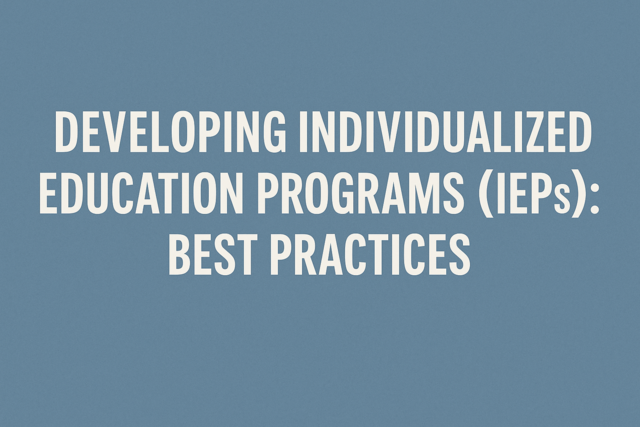 4 hours
0.4 CEUs
Developing Individualized Education Programs (IEPs): Best Practices
+ More Info
4 hours
0.4 CEUs
Developing Individualized Education Programs (IEPs): Best Practices
+ More Info
-
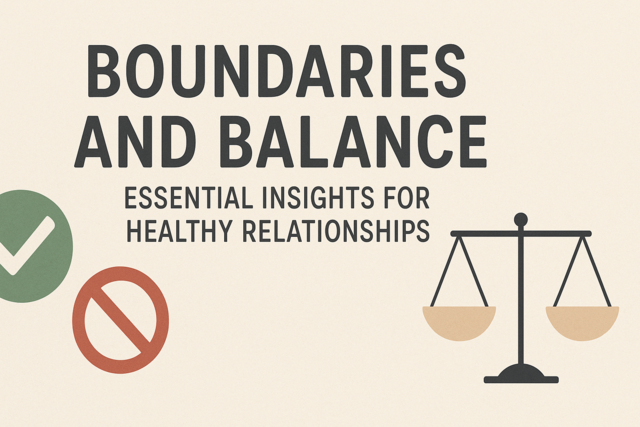 6 hours
0.6 CEUs
Boundaries and Balance: Essential Insights for Healthy Relationships
+ More Info
6 hours
0.6 CEUs
Boundaries and Balance: Essential Insights for Healthy Relationships
+ More Info
-
 4 hours
0.4 CEUs
Innovative Curriculum Design for the 21st Century
+ More Info
4 hours
0.4 CEUs
Innovative Curriculum Design for the 21st Century
+ More Info
-
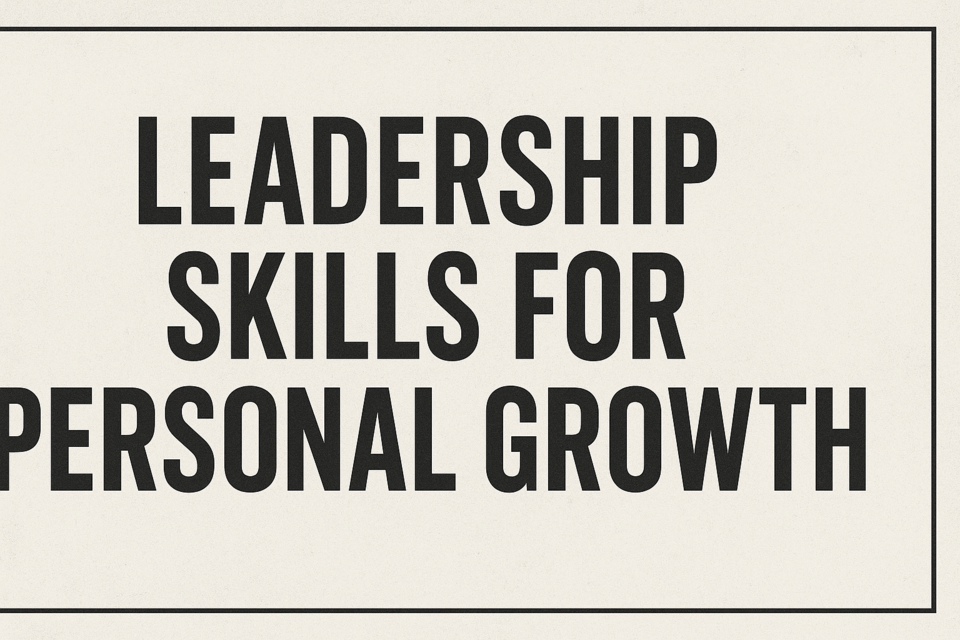 4 hours
0.4 CEUs
Leadership Skills for Personal Growth
+ More Info
4 hours
0.4 CEUs
Leadership Skills for Personal Growth
+ More Info
-
 4 hours
0.4 CEUs
Project Management Essentials for Office Productivity
+ More Info
4 hours
0.4 CEUs
Project Management Essentials for Office Productivity
+ More Info
-
 7 hours
0.7 CEUs
Healthy Sleep Habits and Their Importance
+ More Info
7 hours
0.7 CEUs
Healthy Sleep Habits and Their Importance
+ More Info
-
 5 hours
0.5 CEUs
Advanced Communication Skills for the Workplace
+ More Info
5 hours
0.5 CEUs
Advanced Communication Skills for the Workplace
+ More Info
-
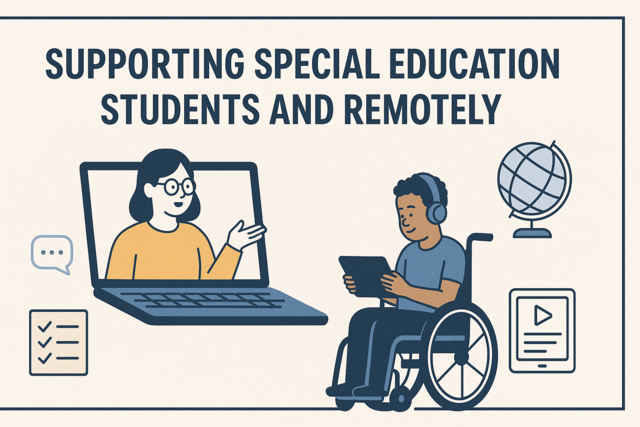 5 hours
0.5 CEUs
Supporting Special Education Students Virtually and Remotely
+ More Info
5 hours
0.5 CEUs
Supporting Special Education Students Virtually and Remotely
+ More Info
-
 5 hours
0.5 CEUs
Developing a Growth Mindset
+ More Info
5 hours
0.5 CEUs
Developing a Growth Mindset
+ More Info
-
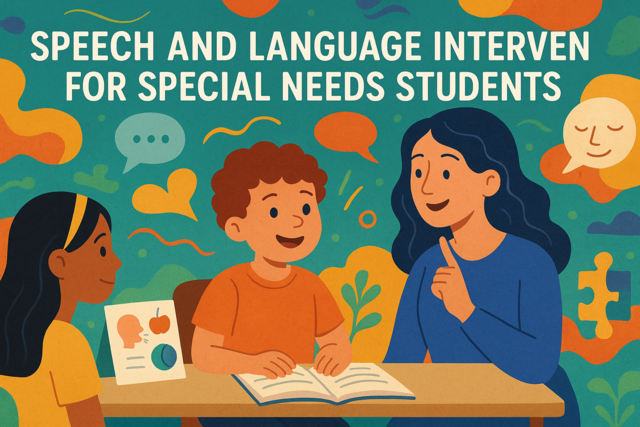 7 hours
0.7 CEUs
Speech and Language Interventions for Special Needs Students
+ More Info
7 hours
0.7 CEUs
Speech and Language Interventions for Special Needs Students
+ More Info
-
 5 hours
0.5 CEUs
Childhood Trauma: Long-term Effects and Interventions
+ More Info
5 hours
0.5 CEUs
Childhood Trauma: Long-term Effects and Interventions
+ More Info
-
 3 hours
0.3 CEUs
Leadership in Love: Fostering Growth in Family Relations
+ More Info
3 hours
0.3 CEUs
Leadership in Love: Fostering Growth in Family Relations
+ More Info
-
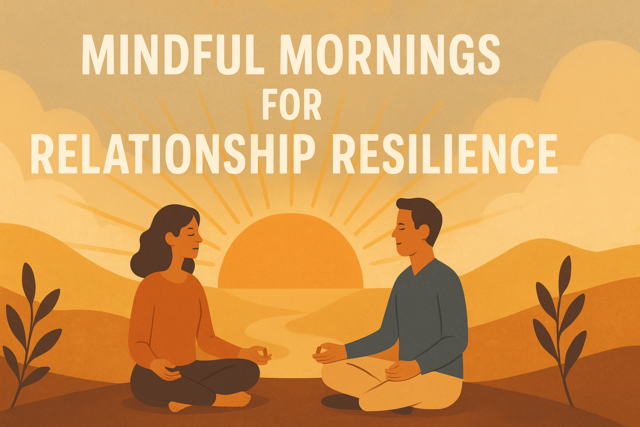 5 hours
0.5 CEUs
Mindful Mornings for Relationship Resilience
+ More Info
5 hours
0.5 CEUs
Mindful Mornings for Relationship Resilience
+ More Info
-
 6 hours
0.6 CEUs
The New Chic: Redefining Urban Elegance
+ More Info
6 hours
0.6 CEUs
The New Chic: Redefining Urban Elegance
+ More Info
-
 6 hours
0.6 CEUs
Introduction to Graphic Design Tools
+ More Info
6 hours
0.6 CEUs
Introduction to Graphic Design Tools
+ More Info
-
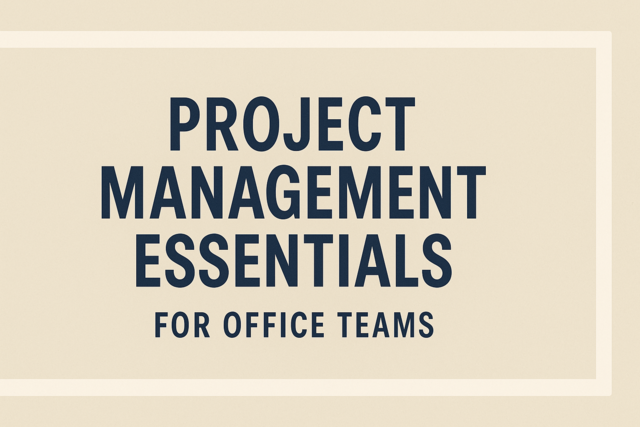 7 hours
0.7 CEUs
Project Management Essentials for Office Teams
+ More Info
7 hours
0.7 CEUs
Project Management Essentials for Office Teams
+ More Info
-
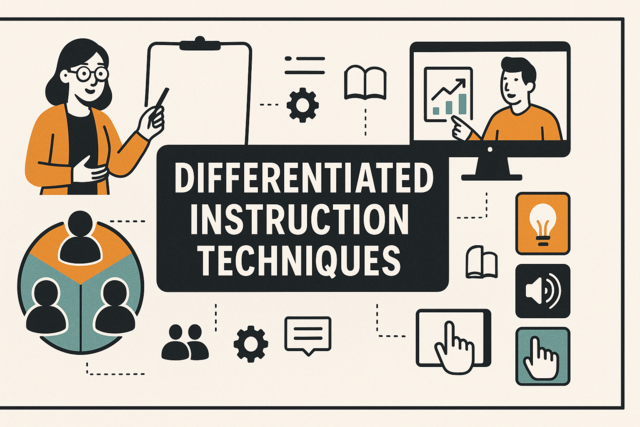 6 hours
0.6 CEUs
Differentiated Instruction Techniques
+ More Info
6 hours
0.6 CEUs
Differentiated Instruction Techniques
+ More Info
-
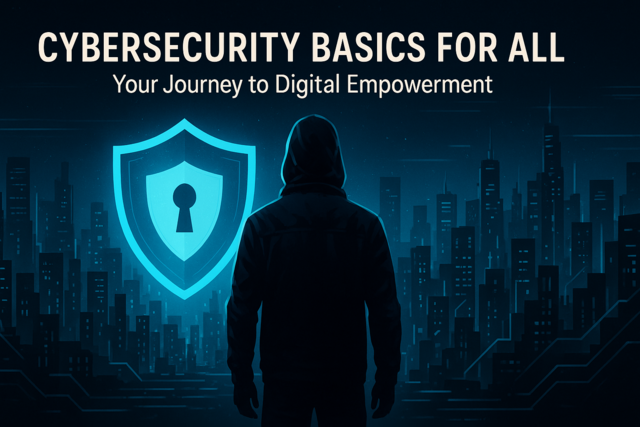 3 hours
0.3 CEUs
Cybersecurity Basics for All
+ More Info
3 hours
0.3 CEUs
Cybersecurity Basics for All
+ More Info
-
 5 hours
0.5 CEUs
Promoting Social Skills in Special Education
+ More Info
5 hours
0.5 CEUs
Promoting Social Skills in Special Education
+ More Info
-
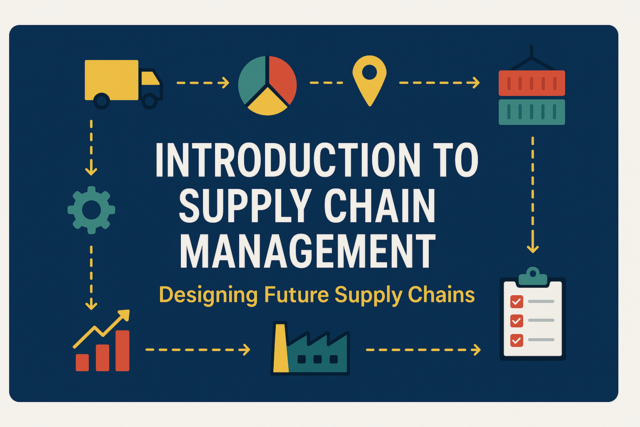 4 hours
0.4 CEUs
Introduction to Supply Chain Management
+ More Info
4 hours
0.4 CEUs
Introduction to Supply Chain Management
+ More Info
-
 6 hours
0.6 CEUs
Flawless Finish: Understanding Details in Luxury Fashion
+ More Info
6 hours
0.6 CEUs
Flawless Finish: Understanding Details in Luxury Fashion
+ More Info
-
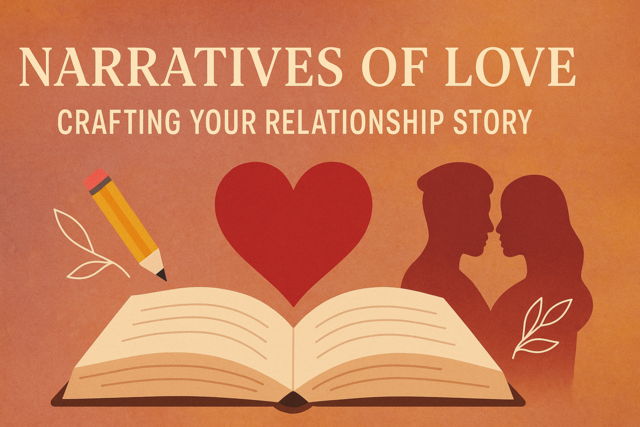 4 hours
0.4 CEUs
Narratives of Love: Crafting Your Relationship Story
+ More Info
4 hours
0.4 CEUs
Narratives of Love: Crafting Your Relationship Story
+ More Info
-
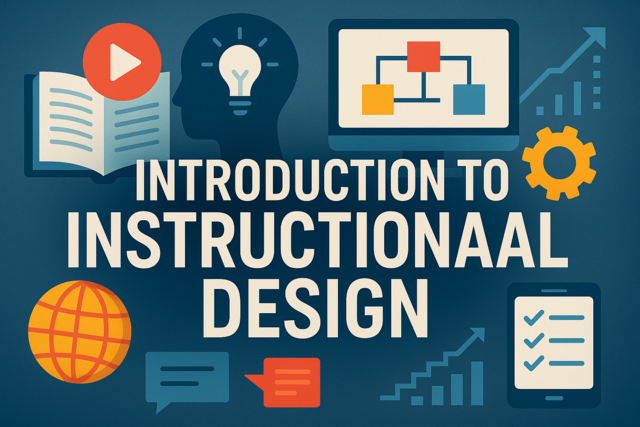 7 hours
0.7 CEUs
Introduction to Instructional Design
+ More Info
7 hours
0.7 CEUs
Introduction to Instructional Design
+ More Info
-
 5 hours
0.5 CEUs
Boosting Productivity with Effective Email Management
+ More Info
5 hours
0.5 CEUs
Boosting Productivity with Effective Email Management
+ More Info
-
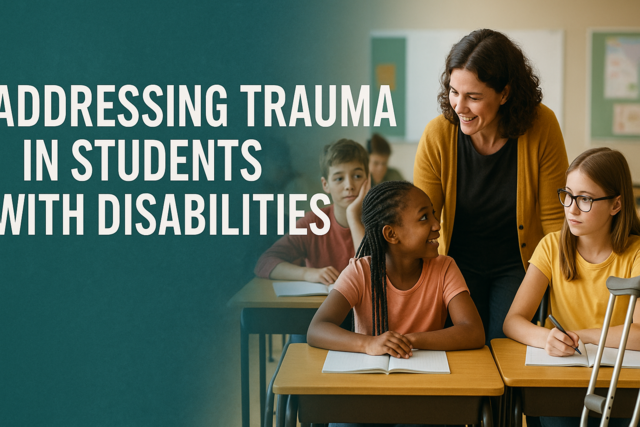 3 hours
0.3 CEUs
Addressing Trauma in Students with Disabilities
+ More Info
3 hours
0.3 CEUs
Addressing Trauma in Students with Disabilities
+ More Info
-
 6 hours
0.6 CEUs
Iconic Influence: Women's Wear in the Age of Luxury
+ More Info
6 hours
0.6 CEUs
Iconic Influence: Women's Wear in the Age of Luxury
+ More Info
-
 4 hours
0.4 CEUs
Sound Healing: Vibrations for Wellness
+ More Info
4 hours
0.4 CEUs
Sound Healing: Vibrations for Wellness
+ More Info
-
 7 hours
0.7 CEUs
Building a Healthy Work Environment
+ More Info
7 hours
0.7 CEUs
Building a Healthy Work Environment
+ More Info
-
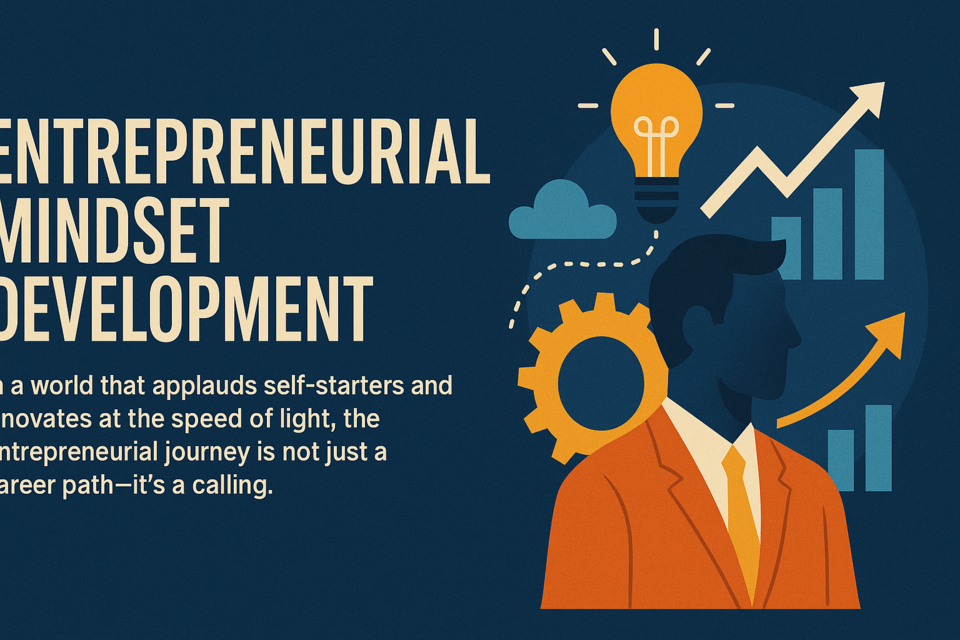 7 hours
0.7 CEUs
Entrepreneurial Mindset Development
+ More Info
7 hours
0.7 CEUs
Entrepreneurial Mindset Development
+ More Info


